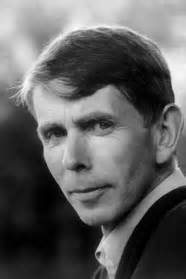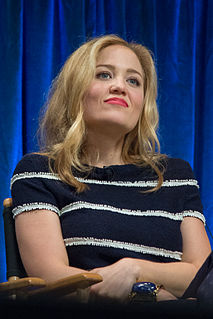A Quote by Haruki Murakami
Problem is, once I sit at my desk and put all these down on paper. I realize something vital is missing. It doesn't crystallize - no crystals, just pebbles. And I'm not transported anywhere.
Related Quotes
There was a sergeant at a desk. I knew he was a sergeant because I recognized the marks on his uniform, and I knew it was a desk because it's always a desk. There's always someone at a desk, except when it's a table that functions as a desk. You sit behind a desk, and everyone knows you're supposed to be there, and that you're doing something that involves your brain. It's an odd, special kind of importance. I think everyone should get a desk; you can sit behind it when you feel like you don't matter.
I know there are other writers who sit down religiously every morning, they take their espresso, they put a clean sheet of paper there and they sit looking at that paper until they've finished or covered at least a number of those pages. No, I'm not like that. I have to be ready. It has to gestate it for quite a while and then it's ready to burst forth.
If you want to concentrate deeply on some problem, and especially some piece of writing or paper-work, you should acquire a cat. Alone with the cat in the room where you work ... the cat will invariably get up on your desk and settle placidly under the desk lamp ... The cat will settle down and be serene, with a serenity that passes all understanding.





































